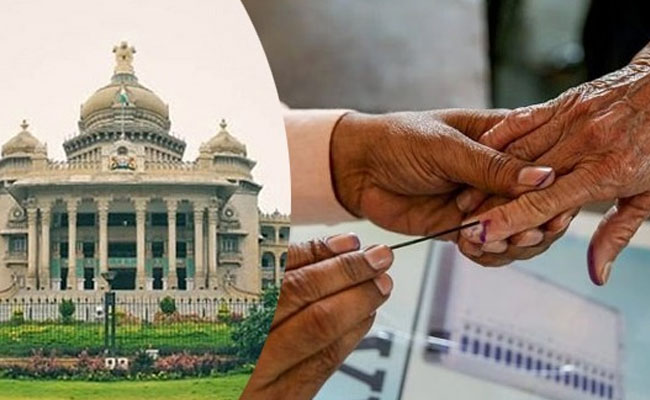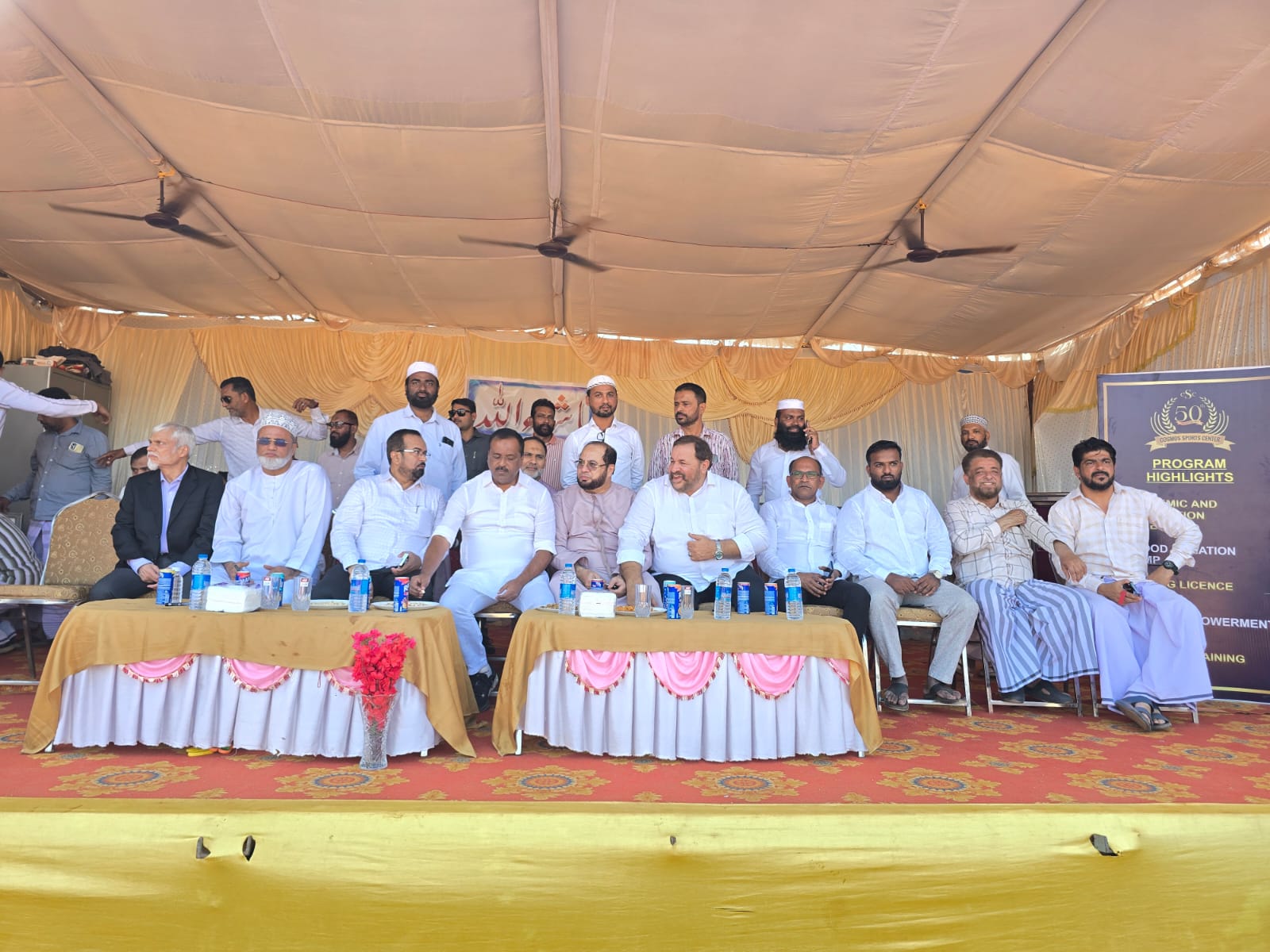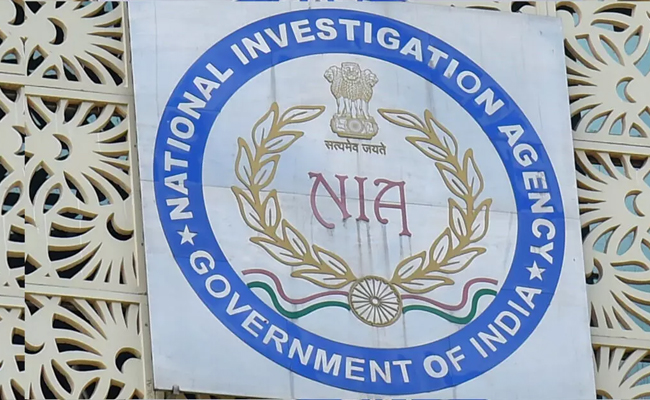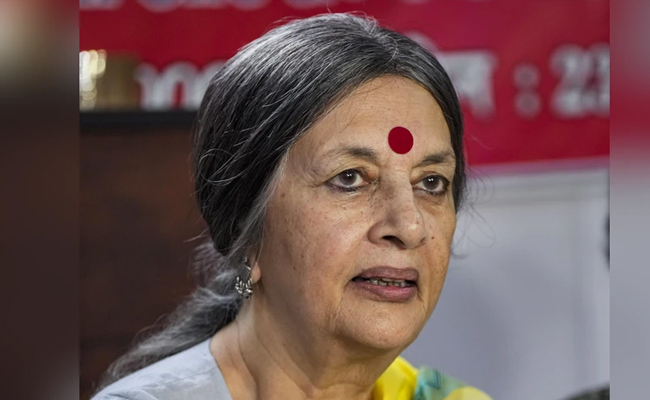Bengaluru (PTI): A total of 2,613 candidates are in the poll fray, as the withdrawal of candidatures for the May 10 Assembly elections in Karnataka came to an end on Monday, election officials said.
A total of 517 candidates have withdrawn their candidature till today, even as parties faced "rebel trouble" in several segments. Out of 2,613 candidates in the poll fray, 2,427 are male, 184 females and 2 others, office of the Chief Electoral Officer, Karnataka said.
Among the contesting candidates from recognised political parties- 224 from BJP, 223 Congress (supporting Sarvodaya Karnataka Party in Melukote), 207 JD(S), 209 AAP, 133 BSP , 4 CPI(M), 8 JD(U) and 2 NPP.
While 685 are from Registered Unrecognised Political Parties (RUPP), 918 are independents.
In 16 constituencies there are more than 15 candidates in the fray, so two Ballot Unit (BU) will be used in these segments during the poll.
Political parties made efforts till the last minute to ensure rebel candidates, who had filed nomination disgruntled over being denied tickets by their respective parties, to withdraw their papers.
In some cases, the parties were successful in convincing such candidates to withdraw, while "rebel trouble" loomed large on the electoral prospects of the official candidates in several constituencies.
The rebel trouble seems to be more in the case of BJP and Congress, compared to other parties.
According to party sources, Congress is facing rebel in Pulakeshinagar (Akhanda Srinivas Murthy), Harapanahalli (M P Latha Mallikarjun), Shirahatti (Ramakrishna Doddamani), Shikaripura (Nagaraj Gowda), Jagalur (H P Rajesh), Arakalagudu (Krishnegowda), among others.
In BJP rebel trouble is in - Puttur (Arun kumar Puttila), Afzalpur (Nitin Guttedar), Goolihatti Shekhar (Hosadurga), Bailhongal (Vishwanath Patil), Gundlupet (M P Sunil), Chennagiri (Madal Mallikarjun), Malur (Vijay Kumar), Gandhi Nagar (Krishnaiah Shetty), among others, party sources said.
Among those who have withdrawn as rebel candidates include - former Bengaluru Mayor- Congress' Gangambike Mallikarjun from Chickpet, BJP's Mahadevappa Yadawad from Ramdurg.
The elections to the 224-member assembly will be held on May 10 and results will be declared on May 13.
Let the Truth be known. If you read VB and like VB, please be a VB Supporter and Help us deliver the Truth to one and all.
Mumbai (PTI): In view of Argentine superstar footballer Lionel Messi's visit to Mumbai on Sunday, the city police are implementing stringent security measures, like not allowing water bottles, metals, coins inside the stadiums and setting up watchtowers to keep an eye on the crowd, officials said.
The police also said taking extra care to avoid any stampede-like situation and to prevent recurrence of the chaotic situation that unfolded in Kolkata during Messi's visit on Saturday as thousands of fans protested inside the Salt Lake stadium here after failing to catch a clear glimpse of the football icon despite paying hefty sums for tickets.
Messi is expected to be present at the Cricket Club of India (Brabourne Stadium) in Mumbai on Sunday for a Padel GOAT Cup event followed by attending a celebrity football match. He is expected to proceed to the Wankhede Stadium for the GOAT India Tour main event around 5 pm.
"In view of Lionel Messi's visit to Mumbai, the police are geared up and have put in place a high level of security arrangements in and around the stadiums located in south Mumbai. Considering the chaos that prevailed in Kolkata and the security breach, we have deployed World Cup-level security arrangements at Brabourne and Wankhede stadiums," an official said.
Expecting heavy crowd near the stadiums during Messi's visit, the city police force has deployed more than 2,000 of its personnel near and around both the venues, he said.
As the Mumbai police have the experience of security 'bandobast' during the victory parade of ICC World Cup-winning Indian team and World Cup final match at the Wankhede Stadium, in which over one lakh cricket fans had gathered, we are prepared to handle a large crowd of fans, he said.
"We are trying to avoid the errors that occurred in the past," the official said.
There is no place to sneak inside the stadiums in Mumbai like the Kolkata stadium, according to him.
The police are also asking the organisers to provide all the required facilities to the fans inside the stadium, so that there will be no chaos, he said, adding the spectators have purchased tickets in the range of Rs 5,000 to 25,000. After paying so much of amount, any spectator expects proper services, while enjoying the event, he said.
The police are expecting 33,000 spectators at the Wankhede Stadium and over 4,000 at Brabourne Stadium. Besides this, more than 30,000 people are expected outside and around the stadiums just to have a glimpse of the football sensation, he said.
The organisers responsible for Messi's India visit recently came to Mumbai to discuss security arrangements. During the meeting, the Mumbai police asked them not to take the event lightly, according to the official.
After those requirements were fulfilled, the final security deployment was chalked out, he said.
Police has the standard procedure of the security arrangements inside the Wankhede Stadium, where people are barred from taking water bottles, metals objects, coins. Police are setting up watch towers near the stadiums and there will be traffic diversions, so that there is maximum space available to stand, according to the official.
Police are also appealing to the spectators to use public transport service for commuting and avoid personal vehicles to reach south Mumbai.
To avoid any stampede-like situation, police are also taking precautionary measures and will stop the fans some distance ahead of the stadium and public announcement systems will be used to guide the crowd. Barricades will be placed at various places to manage the crowd.
In case the crowd swells up beyond expectation, the police will divert people to other grounds and preparations in this regard underway, he said.
Additional police force has been deployed in south Mumbai to tackle any kind of situation, he said.





